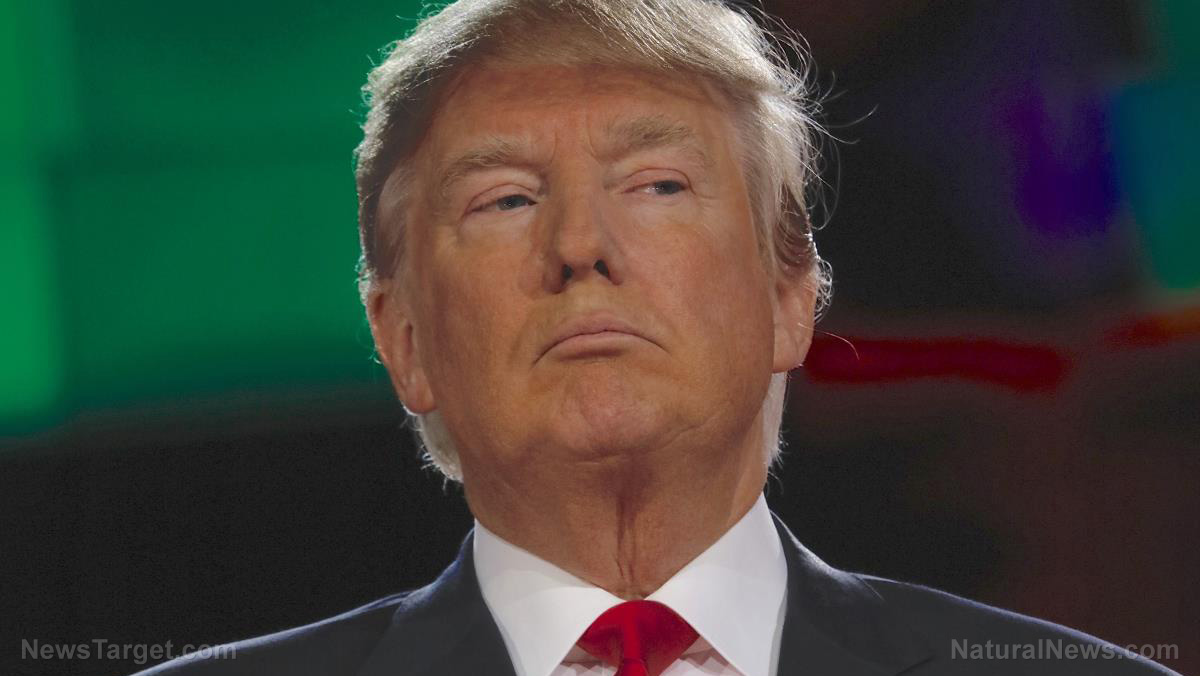 Parler
Parler Gab
Gab
EVs are not green
The central premise for EVs is that driving them will help save the planet from carbon dioxide because they use electricity instead of gas. However, not enough people think to ask: What generates the electricity that powers EVs? Hydrocarbons generate over 60 percent of the electricity in the U.S., meaning that there is a chance that coal, oil or gas is behind the electricity charging an EV. It is important to note that carbon is an essential element for life on Earth. Humans exhale carbon dioxide and plants need it to survive. But after decades of propaganda, so-called environmentalists have created a twisted perception in the public's mind that carbon dioxide is a harmful substance that must be reduced to save the planet. Assuming that carbon dioxide is truly bad for the environment, EVs don't reduce carbon dioxide emissions, they just rearrange them. Additionally, extracting and processing the exotic materials needed to make EVs requires tremendous power in remote locations – which only hydrocarbons can provide. Electric cars also require an enormous amount of rare elements and metals, such as lithium and cobalt, that companies mine in conditions that aren't completely good for the environment. According to analysts, each EV requires at least one kilogram of rare earth elements. Extracting and processing these rare elements produces a lot of toxic waste. This is why production mainly occurs in China, a country that doesn’t care much about environmental concerns. In short, the notion that EVs are green is false. It’s simply propaganda that governments use to justify the astronomical taxpayer subsidies for electric cars. (Related: Study finds electric vehicles are heavier and cause more damage to roads than gas and diesel cars.)EVs can't compete without government support
For many years, governments have heavily subsidized EVs through loans, grants, rebates, sales tax exemptions, tax credits and other methods. Data suggests that American taxpayers will subsidize EVs by at least $393 billion in the coming years, which is more than the gross domestic product (GDP) of Hong Kong. To illustrate, if someone earned $1 a second every day for one year, or about $31 million per year, it will take at least 12,677 years for that person to make $393 billion. This doesn't even include the subsidies and government support that have occurred in the past. Governments also impose burdensome regulations and taxes on gasoline vehicles to make EVs seem like a more attractive option. But even with government support, EVs can barely compete with gasoline vehicles. According to consumer research firm J.D. Power, the average electric car costs at least 21 percent more than the average gasoline vehicle. Without government support, the market for EVs would evaporate simply because they would become unaffordable for most buyers. This means the EV market is being artificially propped up by extensive government intervention. So why are governments going all out to promote this uneconomic scam?The government is pushing EVs to CONTROL the public
Modern devices come with many useful features, but they are also easy to turn against their users. For example, governments can use electric cars as spying machines. Like other modern devices, EVs will collect different kinds of data on you, like how you drive and your frequent destinations, which governments can access easily. Analysts have estimated that cars generate at least 25 gigabytes of data every hour. Since governments could integrate EVs into a larger high-tech control grid, there is a great risk for corrupt governments to abuse such a system. In the U.K., senior government ministers have expressed fears that Chinese electric cars imported to the U.K. could be used to spy on Britain in the future by collecting data from customers. As China develops cheaper EVs, some government officials fear that they could be used to gather data and take photographs and recordings which would be used by the exporter's rulers. The last thing any government wants is an incident like Canadian truckers rebelling en masse against vaccine mandates. If the Canadian truckers’ vehicles were EVs, the government would have easily been able to stamp out the resistance. The government and manufacturers don't want the average person to have freedom of movement or access to independent power sources. This is why those in power are pushing for the phase-out of gasoline vehicles and why they are trying to push for EVs. Despite their alleged benefits, electric cars are not green, cannot compete with gas cars without enormous government support and are crucial to the emerging high-tech control grid. To end government control through EVs, all government subsidies and support must be eliminated. It's easy to say that it's better to let EVs compete on their own merits in a free market, but this is unlikely to happen. Despite the lack of interest, governments will try harder to push EVs. It's bad enough that electric cars are government-subsidized status symbols for wealthy liberals who want to show that they are saving the planet. Along with things like digital IDs and vaccine passports, EVs are likely an integral part of the Great Reset or the dystopian future the global elite has envisioned for all humanity. Learn the truth about electric vehicles at RoboCars.news. Listen to the Health Ranger Mike Adams discussing electric cars and the myth of "green energy" below. This video is from the Health Ranger Report channel on Brighteon.com.More related stories:
Over 1.1 million Tesla electric cars in China RECALLED over dangerous braking defect. Nobody is buying electric cars, but automakers continue to manufacture them in accordance with “green” agenda. Electric cars, “sustainability,” and other city folk ideologies are a clean energy MYTH – watch at Brighteon.com. Sources include: GlobalResearch.ca DailyMail.co.uk Brighteon.comBy Arsenio Toledo // Share
Trans spox says Ukraine will hunt down “Russian propagandists” around the world
By News Editors // Share
Joe Biden just DISQUALIFIED himself from the very presidency he STOLE in the first place
By Ethan Huff // Share
Governments continue to obscure COVID-19 vaccine data amid rising concerns over excess deaths
By patricklewis // Share
Tech giant Microsoft backs EXTINCTION with its support of carbon capture programs
By ramontomeydw // Share
Germany to resume arms exports to Israel despite repeated ceasefire violations
By isabelle // Share










